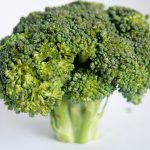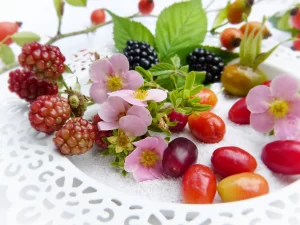How your diet can aid your immune system

The dark nights, lack of sleep, and ongoing stress cause the body to increase levels of cortisol and other hormones connected to hunger. There are many studies that support the fact that hormone tsunami due to various stressors increases appetite — along with your desire for sugary and fatty foods.
Cleaning up your eating habits and following a mainly unprocessed, wholefood diet is one of the best interventions to support your immune function. Good nutrition can help the sleep problems and also curb the side effects of stress.
The gut and the immune system aren’t separate entities operating in isolation as it is the whole body works interdependently. They have a multifaceted and deep-rooted relationship. I.E Each of our body systems are interconnected and dependent on each other. Our heart, which is part of our circulatory system, does not beat unless our brain, which is part of our nervous system, tells it to. Our skeletal system is dependent on our digestive system for an increase in size and strength. Remarkably, 70-80% of immune activity takes place in the gut (3). And so, feeding the bugs that live in your gut – collectively known as the ‘microbiome’ – means you’ll be supporting your immune system. Nourishing your gut may prompt you to do a ‘spring clean’ of your life, re-evaluating your eating habits, stress levels and sleep hygiene.
What are ‘whole foods?
Whole foods educate the immune system to work better. The nutritional 'cooked from fresh' foods are minimally processed, in as close to their natural form as possible, and immediately identifiable (fruit looks like a fruit, for instance). Conversely, highly processed foods comprise refined carbs, unhealthy fats, free sugars, and salt. They’re also often woefully poor sources of dietary fibre, micronutrients and protein. As such, try to fix healthy meals using real, whole food ingredients: fish, meat, eggs, whole grains, legumes, plenty of vegetables, fruit, nuts, seeds and plenty of fresh herbs and spices. Eating this way ensures every calorie you consume is jam-packed with goodness.
Broccoli vs. biscuits

 Unlike a refined biscuit, which offers some nutritional value, broccoli lives up to its superfood reputation. This crunchy cruciferous vegetable's route down to the digestive tract, not only feeds your gut bacteria, but also supports immune function, has a good amount of fibre, and micronutrients and bestows various health benefits along the way. it’s no contest, really.
Unlike a refined biscuit, which offers some nutritional value, broccoli lives up to its superfood reputation. This crunchy cruciferous vegetable's route down to the digestive tract, not only feeds your gut bacteria, but also supports immune function, has a good amount of fibre, and micronutrients and bestows various health benefits along the way. it’s no contest, really. Keep frozen fruit and veggies in the house at all times. Perfect for smoothies, snacks, or bulking-out meals.
Keep frozen fruit and veggies in the house at all times. Perfect for smoothies, snacks, or bulking-out meals.Essential nutrients for your immune system
 Microbiome diversity Historically, gut bugs were viewed as ‘good’ or ‘bad’. Thankfully, we now understand this approach is far too binary and oversimplified. In truth, a healthy gut microbiome is diverse. Think of your gut bug community as a factory with specialist workers carrying out essential duties to keep you alive. For optimal health, you need to ensure all departments are sufficiently staffed. That’s why hiring a diverse workforce is so paramount.
Microbiome diversity Historically, gut bugs were viewed as ‘good’ or ‘bad’. Thankfully, we now understand this approach is far too binary and oversimplified. In truth, a healthy gut microbiome is diverse. Think of your gut bug community as a factory with specialist workers carrying out essential duties to keep you alive. For optimal health, you need to ensure all departments are sufficiently staffed. That’s why hiring a diverse workforce is so paramount.
Modern life’s attack on gut health Sadly, gut health and modern life are at odds with one another. Over the years, the trappings of modernity – highly processed food, psychological stress, over-exercising, a lack of sleep, and much more – have devastated our gut populations. Because the microbiome acts as a critical player in the body’s defence against the outside world, we need to repopulate our gut bacteria.
Eat the rainbow Eating a varied, colourful and fibre-rich diet is one of the simplest ways to transform your gut population. A diverse menu means a diverse microbiome. By increasing the number of foods you eat from all six plant-based groups – vegetables, fruits, whole grains, legumes, nuts and seeds – you can increase your intake of fibre. In turn, this may encourage the growth of happy and assorted bugs in your gut. Eating the rainbow can promote such diversity. The different colours in plant foods are known as phytonutrients. The more colours you eat, the more variety of these powerful nutrients you’ll be getting, and the healthier your gut will be.
Did you know? In a study on a Tanzanian hunter-gatherer tribe known as the Hadza, researchers found the Western gut microbiome is around 50% less diverse than theirs (4). amazingly, these tribespeople have access to over 8,000 different plant foods and, on average, eat 2,000 of these throughout their lifetimes.
The three k’s Fermented foods are all the rage these days. But don’t be so quick to pooh-pooh them as just ‘another wellness craze’. Traditionally, fermentation was used as a means of preserving food. But the benefits of fermentation extend far beyond this. Fermentation enhances the natural, beneficial bacteria in food. And these bacteria are widely touted to support gut health. For an extra dose of gut-loving goodness, try to increase your intake of fermented foods. The three k’s are a great place to start: kombucha (fermented tea), kefir (fermented milk), and kimchi (fermented cabbage). To further enhance the microbiome eat foods such as onions, garlic, leeks, artichokes, bananas, okra, cauliflower, broccoli and chicory root.
Many of my patients have started using these and now have a well-working gut and good microbiome to support it.
Chicory root Derived from the dandelion family, chicory root may play a particularly important role in maintaining normal intestinal health. Chicory root contains a specific type of soluble fibre called Fructo-oligosaccharide, otherwise known as FOS. Beyond feeding the healthy bacteria in your gut, soluble fibre also draws moisture into the gut and therefore, may support regularity.
Adequate rest and lowered stress levels are essential to fuel and care for the collection of microorganisms living in your gut.
Don’t over-exercise.
Does drinking water boost your immune system?
 Add lemon, orange slices, mint or cucumber for flavour Buy a 600ml reusable water bottle: have one finished by lunchtime and another by the end of work, then top yourself up by dinner.
Add lemon, orange slices, mint or cucumber for flavour Buy a 600ml reusable water bottle: have one finished by lunchtime and another by the end of work, then top yourself up by dinner.
References: Popkin. B, D’Anci. K, Rosenberg. I. Water, hydration, and health. Nutrition Reviews. 2010;68(8):439-458.
Kim HS. et al., Stimulatory Effect of ??-glucans on Immune Cells. Immune Netw. 2011 Aug;11(4):191-5.
Vighj, Allergy;153:3-6.
Schnorr S. et al., Gut microbiome of the Hadza hunter-gatherers. Nature Communications. 2014;5(1).
Nature’s Best



